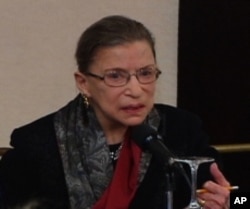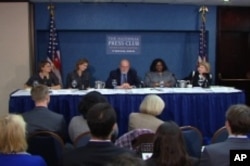Reed v Reed is a U.S. Supreme Court case many have never heard of. Yet, it triggered the landmark 1971 decision that declared it unconstitutional to discriminate against a woman solely because of her gender.
In the wake of that historic ruling, hundreds of laws were changed, giving women - and men - unprecedented rights under the Equal Protection Clause of the Fourteenth Amendment.
Reed v Reed
Sally Reed, a divorced, single mother, started it all when she challenged an Idaho state law which prohibited her from administering her dead son’s estate because she was a woman. The law at the time stipulated that, when two people were equally entitled to administer a deceased person’s estate, males must be given preference over females.
Reed fought the case against her ex-husband through every level of the courts until it ended up before the U.S. Supreme Court, which ruled unanimously in her favor. She was represented before the high court by a young lawyer named Ruth Bader Ginsburg, who would later become a U.S. Supreme Court justice.
Ginsburg, then a professor of law, was the principal author of the brief on behalf of Sally Reed.
“Sally Reed thought that this law was not just, and, this is the most remarkable thing, she had faith in the legal system of the United States to right the wrong that she thought had been done to her,” says Ginsburg. “So when this case was going to the trial court, the appeals court, the Supreme Court in the state of Idaho, people were noticing it, and thinking; ‘this is the case that will enable the Supreme Court to understand the pernicious effects of making laws on the assumption that women are this way and men are that way.’ And that prediction proved correct.”
Reed turns 40
At a recent panel discussion in Washington marking the 40th anniversary of the case, Ginsburg said the landmark decision, establishing that the government could not discriminate on the basis of gender, led to changes throughout American society.
“In the wake of Reed, hundreds of laws, state and federal, were changed. Congress went through all the provisions of the U.S. code and changed almost all that had overt gender classifications,” she said.
For example, Congress passed laws banning employment discrimination against pregnant women, and prohibited sex discrimination in education programs that receive federal support, including sports.
Not for women only
But women weren't the only ones to benefit from the new standard of equal protection under the law.
Emily Martin, vice president and general counsel at the National Women’s Law Center in Washington, told the panel's audience that the revised laws gave men new rights as well.
“For example, in 1975, in another case brought by Ginsburg, the Supreme Court opened the door for thousands of widowed fathers to receive social security benefits that before were only available to widowed mothers of dependent children.”
Reed v Reed - 40 years later
According to Ginsburg, gender barriers facing women in the workplace today have almost completely disappeared.
“The closed-door era has ended,” she says. “I think there’s no occupation that is closed to women. I mean once it was lawyering, bar tending, policing, firefighters, all those jobs were off limits to women. And now there is almost no occupation that is not open to women.”
Ginsburg - the second woman appointed to the U.S. Supreme Court - says what remains now is something a ruling cannot mandate; for American society to be open to the idea that women, and men, need a balance between work and family.






